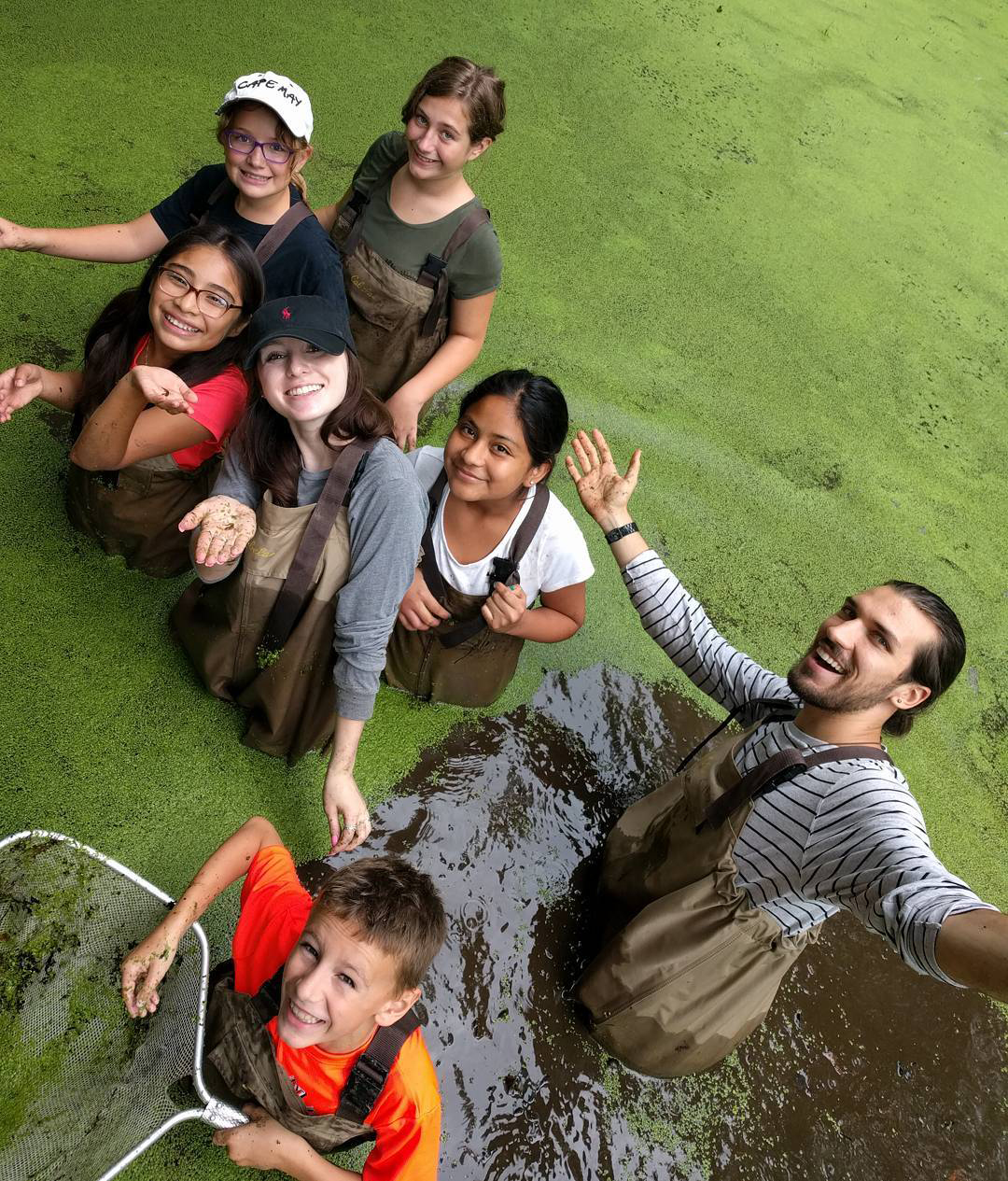
Cary Camps & COVID-19
Please provide proof of full vaccination with an FDA authorized vaccine as recommended by the Center for Disease Control and Prevention (CDC). More information on our COVID-19 protocols will be shared prior to your camper’s start date.
If you have questions regarding FDA authorized vaccines, please speak with your child’s healthcare provider.
Taught by artist and conservation biologist Hara Woltz and ecology educator Ashley Alred, this course offers an alternative to the traditional summer camp and will be a transformative experience for students entering grades 8-12 who are looking to deepen their understanding of the environment where they live.
Weaving together science and art, this class offers students a unique opportunity to combine field ecology and artistic practice as they investigate the 2000 acres of Cary Institute of Ecosystem Studies. Through guided explorations of the Institute's forests, fields, and wetlands, and in-depth engagement with artists and scientists and their research projects, the class introduces students to a variety of observational and notational methods that are applicable to inter-disciplinary thinking and innovation.
Throughout history, both scientists and artists have used field journals to note their observations of the ecological world and develop their ideas. The practice of recording and experimenting in journals engages and develops lateral thinking capabilities that serve students in a variety of academic capacities.
During the week, students will create visually layered experimental field journals, and engage in site-specific art creation based on scientific research. Students will experiment with a number of techniques including data visualization, sketching, collaging, writing, and critical questioning that make the process of notation compelling, creative, and highly enjoyable.
Lunch is not provided, but we do provide light snacks. Students must bring their own sack lunch, snacks, and water bottle.
Schedule
Art+Science is open to any student entering grades 8-12 in fall 2023. Students can register for one or both sessions. Both sessions will have the general theme of Ecosystem Exploration involving both plants and wildlife, but the specific topics will be different each week.
Session 1: July 24-28, 9:00 am – 4:00 pm
Session 2: July 31-August 4, 9:00 am – 4:00 pm

Tuition
We are offering two different rates aligning with income as a way to offer more equity to our camp families. You will be able to self-select on the registration form.
Household income <$75,000
Tuition: $345
Household income >$75,000
Tuition: $445
Scholarships
Through the generosity of community members and grant funding from the Dyson Foundation, we are proud to offer a limited number of scholarships to families who qualify. To be eligible for a scholarship students must qualify for free or reduced lunch, as outlined by federal income eligibility guidelines. Scholarships are awarded on a first come, first served basis. Typically all scholarships are awarded by the end of April, so please apply early.
Scholarship application (english)
Scholarship application (spanish)
Please email alreda@caryinstitute.org for more scholarship information.

What campers have to say...
How did camp change how you think about observation?
“You really have to observe something carefully so you can see all the details that you might not from far away."
“I became a lot more open and observant to the world around me, and I learned that you should record even the smallest of observations.”
“I noticed how detailed many things are, and that art really represents the beauty of it.”
About Hara Woltz
Cary's Fall 2015 artist-in-residence, Hara Woltz is an environmental artist and scientist that uses a variety of media to address the destruction and conservation of ecological systems. Her solo and collaborative projects investigate the complex relationships between humans and other living organisms. Field research is integral to the creation of her work. Informed through direct immersion, she documents, questions, and mitigates the impacts of human constructs—perceived and concrete—on the environment and its inhabitants.
Hara has worked on a variety of ecological and habitat design projects throughout the world, including the Asia Trail at the National Zoological Park in Washington, DC, habitat restoration for native species on the North Island of New Zealand, giant tortoise and albatross habitat assessment and restoration in the Galápagos, and bio-cultural resilience in the Solomon Islands. Her work has also appeared in a variety of publications, including ORION, Biological Conservation, Popular Science, and Landscape Architecture Magazine.

This project is made possible with funds from the Statewide Community Regrants Program, a regrant program of the New York State Council on the Arts with the support of the Office of the Governor and the New York State Legislature and administered by Arts Mid-Hudson.